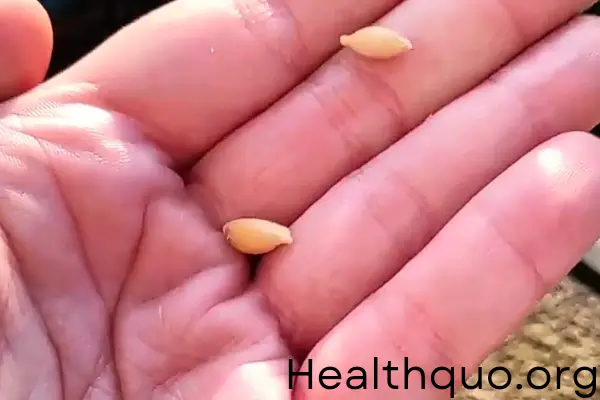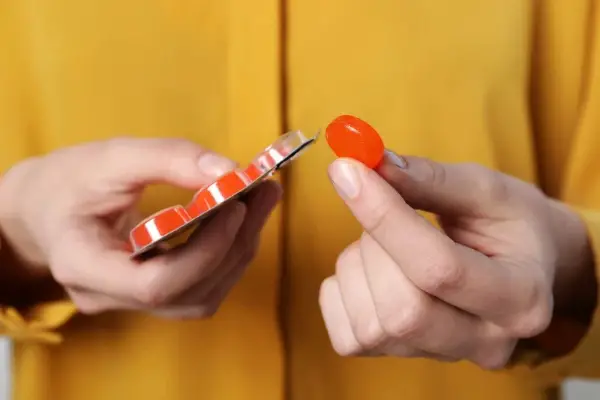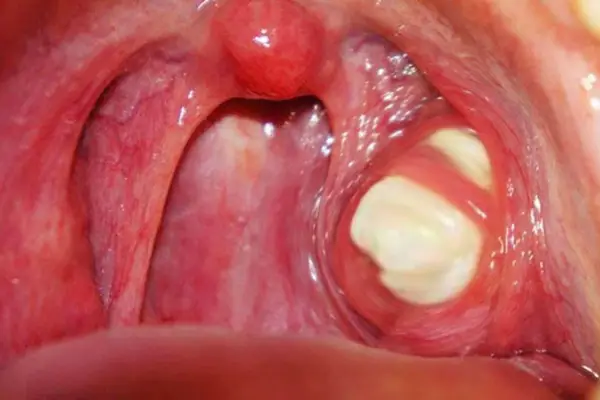Lemon pits, also known as lemon seeds, primarily consist of a hard outer shell and a kernel inside. The outer shell is made of a tough, protective layer that encases the seed.
The kernel inside contains various natural compounds, including some that are bitter.
Accidentally swallowing a lemon seed is a common occurrence that, in most cases, does not lead to serious health issues.
Lemon seeds are not digestible due to their hard, protective outer shell that can withstand the digestive process, allowing the seed to be passed and potentially germinate elsewhere
Lemon Seeds As A Choking Hazard
Although lemon pits are small and smooth, there is a slight risk that a seed could cause choking when the seed slips into the windpipe. Young children or individuals with dysphagia or neurological issues are more prone to choking.
If someone is choking on a lemon seed, encourage them to cough to try to dislodge the seed. If coughing does not work, and the person is unable to breathe, cough, or speak, the Heimlich maneuver (abdominal thrusts) may be necessary.
Stand behind the adult and wrap your arms around their waist. Make a fist with one hand and place it just above the person’s navel but below the ribcage.
Grasp your fist with your other hand and deliver quick, upward thrusts into the abdomen. Continue these abdominal thrusts until the object is expelled or the person begins to breathe or cough.
If the person becomes unconscious, lay them down on their back and call for emergency help immediately, then prepare to perform CPR if you are trained to do so.
For infants (under 1 year old), lay the infant face down along your forearm, support their head with your hand, and give up to 5 firm back blows between the shoulder blades with the heel of your hand.
If the object is not dislodged, turn the infant face-up on your lap and apply up to 5 chest thrusts using two fingers in the center of the chest. Repeat back blows and chest thrusts until the object is dislodged or medical help arrives
Although rare, there is a potential risk that a lemon seed could cause an intestinal blockage, particularly if multiple seeds are swallowed at once or if an individual has a pre-existing condition that narrows the intestines.
Symptoms of an intestinal blockage include severe abdominal pain, vomiting, and inability to pass gas or stools. If you experience these symptoms after swallowing lemon seeds, seek medical attention immediately.
Lemon Seed Toxicity
Toxicity concerns with ingesting lemon seeds are minimal. Lemon seeds contain a small amount of amygdalin, a compound that can release cyanide when metabolized. However, the quantity present in lemon seeds is very low, and consuming a single seed or even a small number of seeds is unlikely to cause harm to most individuals. The human body can detoxify small amounts of cyanide compounds efficiently, and the amount found in lemon seeds is not enough to pose a significant health risk.
It’s important to note that while the risk of cyanide poisoning from lemon seeds is extremely low, it’s still advisable to avoid intentionally consuming large quantities of seeds from lemons or other fruits that contain amygdalin, such as apples, cherries, and almonds, especially in crushed or chewed form where the amygdalin might be more readily released.
Gastrointestinal Upset Due To Lemon Seeds
Swallowing a large quantity of lemon seeds may potentially lead to gastrointestinal upset due to the indigestible nature of the seeds. They can irritate the lining of the stomach and intestines as they pass through the GI tract. This irritation might manifest as symptoms such as abdominal pain, nausea, or bloating.
The risk of significant discomfort or more severe gastrointestinal issues increases with the number of seeds swallowed. In very rare cases, consuming a large volume of indigestible material like lemon seeds could potentially lead to a blockage in the intestines, known as a bezoar.
A bezoar is a mass found trapped in the gastrointestinal system, though it’s more commonly associated with the ingestion of hair, fibers, or other substances not typically found in food.
For most people, accidentally swallowing a few lemon seeds is unlikely to cause notable discomfort. The digestive system is adept at handling small, non-digestible items, and these seeds are usually passed without issue.
However, it’s wise to be cautious and avoid consuming large amounts of lemon seeds or any other indigestible seeds to prevent the possibility of gastrointestinal discomfort or other digestive issues.
If someone experiences significant discomfort, persistent symptoms, or signs of a possible intestinal blockage (such as severe abdominal pain, vomiting, or inability to pass stool) after swallowing lemon seeds, it’s important to seek medical attention to ensure proper diagnosis and treatment.
Can Swallowed Lemon Seed Cause Appendicitis?
Like any other fruit seed, swallowing a lemon seed does not cause or predispose you to appendicitis.
Appendicitis typically occurs when the appendix becomes blocked by stool, lymphatic tissue, or in rare instances, foreign objects, leading to inflammation. While there’s a theoretical risk that ingesting hard objects like lemon seeds could contribute to such a blockage, real-world instances are exceedingly rare.
A study published in the Asian Pacific Journal of Tropical Biomedicine, which looked at 1,969 cases of acute appendicitis, found only one case where a fruit seed was identified in the appendix. This highlights that while possible, the occurrence of appendicitis due to swallowing fruit seeds, including lemon seeds, is minimal.
Lemon Seed Sprouting In The Gut—Myth Or Fact?
The human digestive system is a barrier, not a greenhouse. It is designed to extract nutrients from food. The myth that a lemon seed can sprout in the human gut is quite popular but it is scientifically unfounded and practically impossible.
For a seed to germinate, it requires a nurturing environment – something the human digestive tract, with its acidic nature and rapid processing of food, certainly is not. The stomach, with a highly acidic pH of 1.5 to 3.5, is designed to break down food and neutralize pathogens. Such conditions are far from ideal for a lemon seed, or any seed for that matter, to begin germinating.
Should the seed survive the stomach’s acidity and enter the small and large intestines, it would encounter more digestive enzymes and a complete absence of light, further impeding any chances of sprouting.
Furthermore, the digestion process itself is a race against time. Food typically transits through the stomach and intestines in 24 to 72 hours, a period too brief for germination to occur.
How Lemon Seeds Can Be Beneficial To The Health?
Even though lemon seeds, especially when swallowed in large amounts, pose some risks, swallowing a few lemon seeds can be beneficial to health. Here are some of the potential benefits:
Rich in Antioxidants: Lemon seeds are rich in antioxidants, which can help neutralize harmful free radicals in the body. Free radicals are unstable molecules that can cause oxidative stress, leading to cell damage and contributing to various diseases, including cancer and heart disease.
Antimicrobial Properties: Studies suggest that lemon seeds have antimicrobial properties. This means they can help fight off harmful microorganisms, such as bacteria, fungi, and viruses, potentially preventing infections and promoting overall health.
Source of Essential Oils: Lemon seeds contain small amounts of essential oils that can have various health benefits. These oils can have anti-inflammatory, antifungal, and antibacterial effects, contributing to the seeds’ antimicrobial properties.
Fiber Content: Like many seeds, lemon seeds contain dietary fiber, though in small amounts. Fiber is essential for healthy digestion, helping to prevent constipation and promote regular bowel movements. It can also aid in weight management by making you feel fuller for longer.
Potential for Cancer Prevention: While direct evidence is limited, the antioxidants and compounds found in lemon seeds could potentially contribute to cancer prevention efforts. Antioxidants help prevent cellular damage, a key factor in cancer development.
Cardiovascular Health: The antioxidants in lemon seeds might also play a role in promoting heart health. By combating oxidative stress, they can help protect against atherosclerosis (hardening of the arteries) and reduce the risk of heart disease.
Nutrient-Rich: Lemon seeds, like the fruit itself, contain small amounts of vitamins and minerals that can contribute to overall nutritional intake. However, since the seeds are consumed in very small quantities, the impact on daily nutrient intake is minimal but still beneficial.
Home Remedies For Swallowed Lemon Seeds
If you’ve accidentally swallowed a lemon seed, there’s usually no need for concern as they are non-toxic and generally pass through your digestive system without causing harm. However, if you’re feeling uncomfortable or just want to ensure they move through your system smoothly, there are some home remedies you can try:
Drink Plenty of Water: Water helps to hydrate your body and can aid in the smooth passage of ingested seeds through your digestive tract. Staying well-hydrated ensures that your digestive system functions optimally.
Eat High-Fiber Foods: Consuming foods rich in fiber can help to move the seeds along your digestive tract more easily. Fiber adds bulk to your stool, which can aid in passing the seeds without issue. Foods like whole grains, vegetables, fruits, and legumes are good options.
Exercise: Light physical activity can help stimulate digestion and aid in the movement of the lemon seeds through your intestines. A simple walk or gentle yoga session can be beneficial.
Ginger Tea: Ginger is known for its digestive benefits, including soothing upset stomachs and promoting smooth digestion. Drinking ginger tea may help if you’re feeling any discomfort after swallowing lemon seeds.
Lemon Water: Ironically, drinking lemon water can help. Lemon juice stimulates stomach acid production and digestive enzymes, potentially aiding in the digestion and smooth passage of swallowed seeds.
Bananas: Bananas are not only rich in fiber but also contain natural digestive enzymes. Eating a banana can help ease digestion and move the seeds through your system more comfortably.
Yogurt with Active Cultures: Yogurt that contains probiotics, or active cultures, can support digestive health and help maintain a healthy balance of gut bacteria, which is beneficial for overall digestive function.
When Should You See A Physician
Swallowing lemon seeds is generally considered safe for most people, as they are non-toxic and usually pass through the digestive system without causing harm. However, there are certain situations where it might be necessary to consult your doctor or call emergency services:
Persistent Discomfort or Pain: If you experience ongoing discomfort, pain in your stomach, or any form of abdominal cramping that doesn’t go away after a few days, it’s advisable to see a doctor.
Children and Elderly Individuals: If a child or an elderly person swallows lemon seeds and shows signs of discomfort, it’s a good idea to consult a physician. Their digestive systems might be more sensitive, or they may be at a higher risk of complications.
Pre-existing Digestive Issues: Individuals with pre-existing digestive issues, such as diverticulitis, Crohn’s disease, or a history of intestinal obstructions, should be more cautious and consider consulting a physician if they swallow lemon seeds, even if they do not experience immediate symptoms.
Choking: The first line of response is a Heimlich maneuver but you can tell someone around to help you with this procedure. You should also call 911 or emergency services can quickly result in death.





